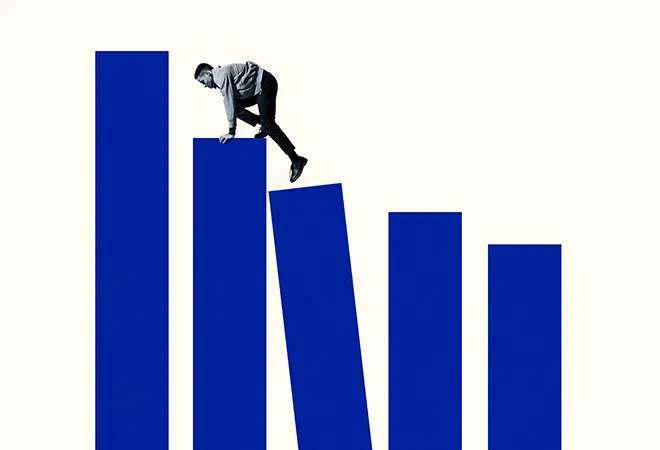-
CENTRES
Progammes & Centres
Location
African leaders are no longer mincing their words. They are bluntly articulating and asserting their demands from bilateral partners and multilateral institutions.

This article is part of the series — What to Expect from International Relations in 2021.
The African continent’s social, economic, and political resilience has been severely tested in 2020. Since the outbreak of the pandemic, African leaders have been vocal and vociferous about their long-standing grievances and the region’s status in global affairs. The deplorable treatment of Africans in Guangzhou, China, and more recently in the US that culminated in the Black Lives Matter movement has been an eye opener that threw light into deep-rooted issues of systemic racial injustice. Compounding these issues is an impending continental recession, and associated challenges of creating more, better, and inclusive jobs, and the fiscal space needed by African governments to effectively respond to the pandemic. Given these inherent challenges and an increasingly fragmented world that is fuelling protectionism and playing into nationalist narratives, African governments are reassessing their roles in the international system and rewriting the rules of engagement with external partners.
Far from being mute spectators, African leaders are playing an effective role in the shaping of the continent’s future and are demanding more equitable ties with existing partners in a sustained and public manner. African leaders are no longer mincing their words. They are bluntly articulating and asserting their demands from bilateral partners and multilateral institutions, especially regarding economic (debt) relief, global health policy, and treatment of African nationals in foreign countries.
Far from being mute spectators, African leaders are playing an effective role in the shaping of the continent’s future and are demanding more equitable ties with existing partners in a sustained and public manner.
Going forward, three broad trends will inform Africa’s standing on the global stage and the nature of engagement with external partners.
Even before the pandemic hit, many African countries were reeling from an enormous debt burden due to a fall in the value of African currencies, slump in oil prices and demand, declining tourism, and declining remittances. Although G20 countries agreed to suspend the debt of poor countries for a period of six months — through the Debt Service Suspension Initiative (DSSI) — there is a consensus among African leaders that only a two-year time scale will give African countries the breathing room it needs to deal with the pandemic. Zambia has already become the continent’s first pandemic-era defaulter on debt. Countries like Djibouti, Ethiopia, Kenya, and Angola are also at risk of debt distress. How Africa recovers from the debt crisis will depend upon the ability of the G20, emerging markets, and private sector to partner together and develop a robust liquidity and structural response.
Economic and regional integration are regarded by business leaders and observers as essential for accelerating Africa’s manufacturing, e-commerce, and digitisation to reduce an overreliance on imports, especially from China. The AfCFTA will be fundamental for Africa’s post-pandemic economic recovery as it will remove trade barriers, spur intra-African trade, encourage foreign investments, and insulate the continent’s economies from future external shocks. African countries are expected to start trading under AfCFTA from 1 January 2021.
African countries and leaders have been ardent advocates for reforming the global governance system. For years, the African Union has been constantly pushing for UNSC reforms, both permanent and non-permanent membership, through the Common African Position and the Ezulwini Consensus, without much success. African voices for constructive and democratic reforms of the multilateral system will continue to grow stronger.
As 2020 draws to a close, navigating the road towards sustained and inclusive post-pandemic recovery may be long and arduous. Global rivalries have intensified which threatens to put Africa at the crossroad of a tug-of-war between the US and China. However, the pandemic has also presented some opportunities for Africa to diversify its external relations.
For the continent to emerge as a meaningful player on the global stage, countries would need to engage in smarter collective bargaining and voice their interests in unison. Rather than being perpetual rule-takers, African actors need to keep pushing for a larger voice in shaping the global agenda and avoid undermining collective African agency.
The views expressed above belong to the author(s). ORF research and analyses now available on Telegram! Click here to access our curated content — blogs, longforms and interviews.

Abhishek Mishra is an Associate Fellow with the Manohar Parrikar Institute for Defence Studies and Analysis (MP-IDSA). His research focuses on India and China’s engagement ...
Read More +